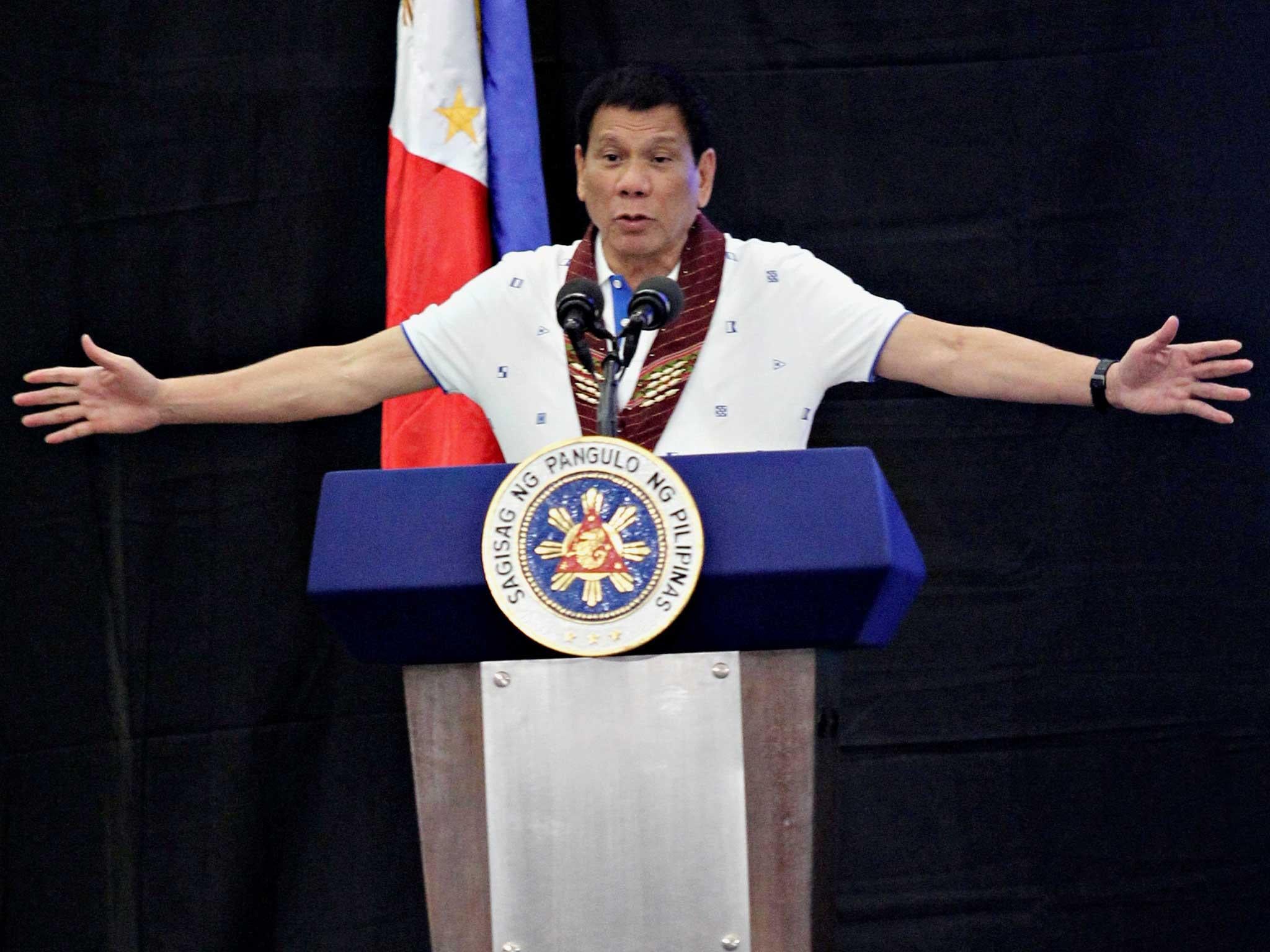US defers major Philippines aid package over human rights concerns under President Duterte
US embassy says there are 'significant concerns' about civil liberties under President Duterte

Your support helps us to tell the story
From reproductive rights to climate change to Big Tech, The Independent is on the ground when the story is developing. Whether it's investigating the financials of Elon Musk's pro-Trump PAC or producing our latest documentary, 'The A Word', which shines a light on the American women fighting for reproductive rights, we know how important it is to parse out the facts from the messaging.
At such a critical moment in US history, we need reporters on the ground. Your donation allows us to keep sending journalists to speak to both sides of the story.
The Independent is trusted by Americans across the entire political spectrum. And unlike many other quality news outlets, we choose not to lock Americans out of our reporting and analysis with paywalls. We believe quality journalism should be available to everyone, paid for by those who can afford it.
Your support makes all the difference.The US government has said a major aid package to the Philippines worth hundreds of millions of dollars may not be renewed, due to concerns over the leadership of President Rodrigo Duterte.
The US embassy to the Philippines said there were “significant concerns” about civil liberties infringements in the country and confirmed a board of experts had deferred its renewal of the Millennium Challenge Grant for a further five years.
The grant, said to be worth over $430 million, is open to nations that "demonstrate a commitment to just and democratic governance, investments in its people, and economic freedom”. It is aimed at reducing poverty in deprived areas.
"This decision reflects the board's significant concerns around rule of law and civil liberties in the Philippines," the embassy said in a statement.
"We will continue to monitor unfolding events in the Philippines, and [this] underscores that all country partners are expected to maintain eligibility, which includes not just a passing scorecard but also a demonstrated commitment to the rule of law, due process and respect for human rights.
"The Board’s deferral of a vote on the Philippines re-selection is not a suspension or termination of the Philippines’ MCC compact eligibility."
The US has been openly critical of Mr Duterte's violent "war on drugs", during which an estimated 5,900 people have been killed without trial in the space of five months.
The homes of more than 1.6 million drug suspects have been visited by police to invite them to surrender and stop using drugs, or disengage from the drug trade.
Mr Duterte responded by declaring the Philippines was to "separate" from the US in a diplomatic sense, after decades of close ties between the two countries.
The Millenium Challenge Corporation (MCC) meanwhile announced new grants had been given to Burkina Faso, Sri Lanka and Tunisia, with the Philippines still eligible for consideration in the future.
“By partnering with developing countries that meet rigorous standards for good governance, from fighting corruption to respecting the rights of women and the rule of law, we are maximising our ability to fight poverty and transform people’s lives,” MCC chief executive Dana Hyde added.
In October, Mr Duterte called US President Barack Obama "a son of a whore" and told him to "go to hell" following criticism of his policies.
The president has since courted favour from the governments of Russia and China, which have suggested they are willing to cooperate with Mr Duterte and provide aid.
Following the election of Donald Trump, Mr Duterte congratulated the President-elect on his success and hinted at a possible close partnership between the two in the future.
In October, Amnesty International said Mr Duterte’s “first 100 days as President had been marked by state-sanctioned violence on a truly shocking scale”.
The President has said he intends to extend his crackdown by “maybe another six months”. The MCC board confirmed it may revisit its decision at its next meeting, in March 2017.
Join our commenting forum
Join thought-provoking conversations, follow other Independent readers and see their replies
Comments